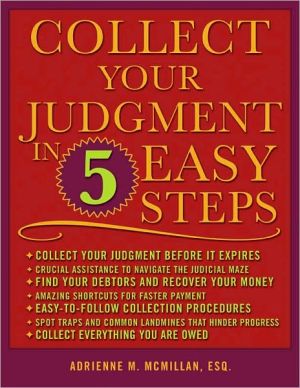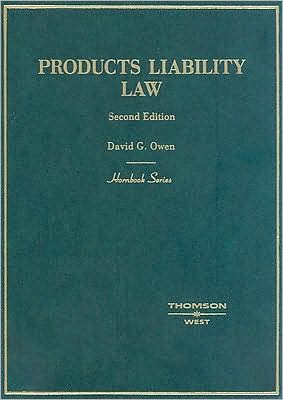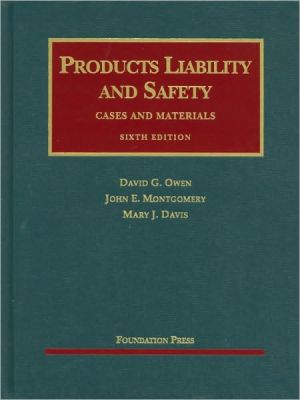Collect Your Judgment in 5 Easy Steps
Collect Your Judgment in 5 Easy Steps is an easy-to use reference guide that helps the average person collect a judgment without an attorney or collection agency.\ It breaks down the process of what to do after receiving a judgment to actually collecting money as a result of it. Each step explains the process and what needs to be done each step of the way to find your debtor, determine what resources they have that you can collect from and then legally enforce your judgment through collection...
Search in google:
Collect Your Judgment in 5 Easy Steps is an easy-to use reference guide that helps the average person collect a judgment without an attorney or collection agency.
How to File for and Conduct a Debtor Examination Hearing\ Excerpted from Collect Your Judgment in 5 Easy Steps by Adrienne M. McMillan ©2007\ In a debtor examination hearing, you examine (question) your debtor at the courthouse about what assets he or she owns and where they are located. You may also examine a third party (someone not named on the judgment) who has information about your debtor's finances, owes your debtor money, or is in possession of your debtor's property.\ Debtor examination hearings are called different names in different jurisdictions. You may hear the term "OEX" when referring to debtor examinations; this stands for an order to appear for examination. You can refer to your local court rules to find out what your jurisdiction calls its debtor examinations. Some of the more common names are citation to discover assets, financial disclosure statement, disclosure hearing, debtor rule examination, and subpoena and affidavit for judgment debtor examination.\ In addition to referring to your local rules, you can also check a practice guide in your local law library to find out what to call a debtor examination in your court.\ EXAMPLES OF STATE-SPECIFIC REQUIREMENTS In Hawaii, to examine your debtor, you would file an ex parte motion for an examination of your judgment debtor. The same form also works for examining a third person who holds money or property belonging to your debtor.\ In Wisconsin, your debtor is sent a statement of assets form as soon as the judgment is entered. A statement of assets is a financial statement to be completed by your debtor and mailed directly back to you. Your debtor has fifteen days to send the statement of assets to you, unless an appeal is filed or he or she has asked the court for an order delaying that fifteen-day due date. Otherwise, you could file a motion and order for contempt. If your debtor failed to attend the hearing on the motion for contempt, the court could issue a bench warrant for your debtor's arrest. If he or she does show up to the hearing, the court would order him or her to complete the statement of assets right there in court.\ In Georgia, you are not permitted to go straight to an examination hearing. You must first have the court clerk send your debtor interrogatories (written questions) by certified mail. If your debtor fails to answer (file a response to the examination questions) within thirty days, you then file a motion to get a hearing to require an answer to the interrogatories form.\ In New Jersey, the process is similar to the process in Georgia. You need to first send your debtor an information subpoena, which is a form of interrogatories that he or she has twenty-one days to answer. You have to have someone serve him or her by personal service or by certified mail. If your debtor does not respond, you may then ask the court for permission to send interrogatories to a third party who may owe your defendant money or possess anything of value owned by your defendant.\ In Kentucky, as in New Jersey and Georgia, you are required to send your debtor written interrogatories. (Refer to a practice guide for sample interrogatories.) Your debtor then has thirty days to answer. If he or she fails to do so, you have to file a post-judgment motion/order requiring him or her to answer your interrogatories.\ If your state does not require you to first send your debtor interrogatories, proceed directly to a debtor examination hearing.\ It is very possible that your court may call its debtor examinations something completely different and even require you to follow more or fewer steps than covered here. Keep your focus on the big picture-understand the overall process before you file for a debtor examination, whatever that process may be called.\ SCHEDULING AN EXAMINATION To file for an examination hearing, get the required forms from your court clerk's office. Your local court rules will tell you on which days of the week your courthouse holds examination hearings, in which room (sometimes called department) you should appear, and how to file the forms. You may have to pick a date for your hearing, write it on your documents, and file them with the court clerk before you serve the other party. Or you may have to do just the opposite-pick a date for your hearing, write it on your documents, serve the party, and then file your papers. If standardized forms are available, read them carefully before completing them.\ WHERE TO FILE Check to see if there are restrictions concerning where your debtor currently lives and in which courthouse your examination hearing must be held. For example, it may be required that your examination hearing be held at a courthouse within a certain number miles of where your debtor currently lives. If your debtor has moved outside that specified distance from your courthouse, then you will have to hold your examination in a courthouse closer to where your debtor lives now. If you end up having to go to another courthouse, check the local rules of that courthouse for the requirements. Again, try to look up the rules for that new courthouse online before going down to your local law library.\ IF YOUR DEBTOR HAS MOVED In most states, if your debtor moved to another county in your state, all you need to do is get a certified copy of your judgment or an abstract of judgment from the court that entered your judgment. Take your abstract (once issued by the court) or your certified copy of your judgment to the courthouse closest to your debtor's new home and file for a debtor's examination hearing. Inform the clerk why you are filing for an examination hearing in a different court. You will probably be given a different case number to be used just for that examination hearing. You will resume use of your original case number for every other procedure in your courthouse after that hearing.\ WHO TO EXAMINE You can examine your debtor and anyone else who owes your debtor money, controls your debtor's property, or has knowledge of your debtor's assets. As mentioned earlier, some states require that you examine your debtor first before examining a third party, but you may be allowed to skip examining your debtor and go directly to examining a third party if you have cause (a good reason).\ FORMS If you are going to examine someone other than your debtor, you will need to either fill out forms for a third-party examination or note on the form that you are examining a third party. If your debtor is a corporation, LP, or LLC, you will always be examining a third party (because those businesses are entities and not human beings), such as the company's chief executive officer (CEO) or chief financial officer (CFO).\ Copies Your local rules will also tell you how many copies of your forms you must file. Also, note whether the forms can be handwritten or whether they must be typed. When in doubt, type the forms. Take at least three copies with you along with the original; one copy for your debtor, one copy for you, one spare, and the original for the court. Again, first find out if you need to file first and then serve your debtor or serve your debtor first and then file your paperwork.\ SCHEDULING A TIME Before you schedule your hearing date, you will need to find out how many days' notice you must give your debtor (meaning how long you have to serve your debtor the paperwork before the hearing). Be sure that you schedule your hearing far enough in the future that you allow yourself enough time to have your debtor served.\ In some courts, debtor exams are held every day at the same time. If this is the case in your courthouse, just select a day that will give you enough time to serve your debtor with the required notice and that is good for your schedule. You must then have your debtor personally served with the debtor's copy so he or she knows when and where to come to court. Whoever serves your debtor needs to complete a proof of service and return it to you. Return the proof of service and a copy of your paperwork to the clerk's office.\ In some states, the clerk does all the scheduling. You just need to complete the required form and turn it in with the required number of copies, and the clerk will take it from there.\ SERVICE OF YOUR PAPERS In some states, you can have a friend serve your examination paperwork to your debtor, but in many states, you need to have a process server or the sheriff 's department serve your paperwork. If your debtor does not show up to your first scheduled hearing, the clerk will probably reschedule your hearing and send your debtor a threatening letter, sometimes called a bench letter.\ In some states, like Maine, you do not have to go through the bench letter step. If your debtor does not show up to your first scheduled hearing, you complete an affidavit and request for a civil order for arrest. You have to pay a fee and the sheriff will go out and pick up your debtor and bring him or her to court.\ In states that do not send a bench letter, the court will probably only issue a bench warrant for your debtor's arrest if he or she is served properly by a process server or the sheriff's department. A bench warrant is an arrest warrant issued by a judge instructing the sheriff's department to go out and pick up your debtor. Your debtor will not end up sitting in jail-he or she will be picked up and brought to the courthouse to set bail. However, if you had your debtor served by someone other than a sheriff's deputy or a process server, the court probably will not issue a bench warrant.\ If your debtor is picked up on a bench warrant and posts bail to get out, you can get the court to order that bail money handed over to you. Check with the clerk who issues the bench warrants for the specific requirements in your court.\ SUBPOENAS It is a good idea to have your debtor bring his or her financial records to your examination hearing. Most debtors will not voluntarily bring their personal financial papers, so you will have to subpoena them. A subpoena is a court order that orders someone to appear in court. A subpoena duces tecum is an order to appear in court and bring specific documents to the court. It will be much easier to conduct your debtor exam if your debtor brings his or her financial records, such as bank account statements and tax returns, to court. It really is worth your time to file a subpoena duces tecum and have it served on your debtor with your examination hearing papers. It will only take a few extra minutes to fill out a subpoena and file it. It may even scare your debtor into voluntarily paying you.\ When completing the form for a subpoena duces tecum, be as thorough as possible. Request every document that you suspect will reveal relevant information concerning your debtor's financial affairs. Keep in mind that any money owed to your debtor from a third party should also be investigated during your examination hearing and when completing your subpoena. If there are any documents that your debtor has that may lead to information concerning any assets of which your debtor or a third party has possession, request them in your subpoena.\ Once your paperwork is filed and served to your debtor (or served to your debtor and then filed, whichever process is required in your state), you can start preparing for your examination hearing.\ THE HEARING Due to the private nature of the information revealed in debtor exams, the hearings are conducted very differently from trials. There will probably only be a few people in the courtroom. In most states, you will not be conducting your examination in front of a judge or commissioner. Usually, the court clerk swears you both in and then instructs you to go off to the side to examine your debtor. Find a comfortable place to sit and get going.\ In Maine, debtor examinations are conducted a little differently. A judge will be present to oversee your examination and both parties may subpoena witnesses. After you complete your examination, the judge will make a decision about how your debtor should pay you and when.\ UNCOOPERATIVE DEBTOR Unfortunately, not all things go as planned. If your debtor fails to produce any of the documents that you subpoenaed or to answer your questions, instruct your debtor that he or she may be held in contempt. If your debtor then agrees to produce the documents at a later date, you can ask the clerk to reschedule your hearing. You can also proceed with your examination and inform the clerk that you need an additional date on the calendar for your debtor to produce the documents that he or she failed to bring.\ If your debtor still refuses to answer your questions or promise to produce the documents that you requested at a later date, again ask the clerk for assistance from the judicial officer in charge of debtor exams. Hopefully, the judicial officer assigned to the examination calendar will take the bench and instruct your debtor to cooperate, or will conduct your exam for you.\ TIPS FOR CONDUCTING YOUR EXAMINATION If you were nervous about appearing in court for your trial, then you may want to attend a few examination hearings before actually conducting one of your own. Call your courthouse or look in your court's local rules to get the time and location for debtor examinations. Due to the private nature of the information revealed, you will probably only be able to observe from a distance.\ Start your examination by setting the ground rules with your debtor. Always be professional. Look your debtor in the eye and say, "Hello. We'll start by you completing this questionnaire. When you are done, I'll ask you some questions about your assets. While answering the questionnaire and my follow-up questions, be as thorough as possible. Do you have any questions before we begin?" You control the examination. Do not allow your debtor to run over you.\ Stay focused! Do not allow yourself to be sidetracked. This is not the time to discuss the underlying merits of your case-that time has passed. You now have a judgment and that is all that matters. If your debtor persists, say, "I'm attempting to collect the judgment the court has ordered. If I need assistance conducting this examination, I can request the commissioner/ judge take the bench and order you to answer, if you would prefer." If your debtor continues to be difficult, ask him or her to stay seated while you go to the courtroom clerk and ask for the commissioner/judge's help. Explain your debtor's behavior and ask for help.\ Before you start asking questions, take a look at your debtor's key chain. Ask your debtor to show you his or her keys, and then ask what each key goes to. If it is a car, ask the make, model, year, and who owns it. If one of the keys goes to a house or a commercial building, ask who the owner is and where it is located. If the debtor denies ownership of the item for which he or she has a key, then ask why he or she has a key to something he or she does not own. Does it belong to the debtor's employer? Who is his or her employer?\ Hand your debtor the examination questionnaire and wait patiently for him or her to complete it. Do not be surprised if he or she makes comments or fails to complete it. Simply review it when your debtor is done and go through it question by question. Ask follow-up questions.\ Next, ask if your debtor owns or is owed anything valuable that you have not mentioned or covered. If you do not get a straight answer, rephrase your question and ask it at a later time in the examination.\ You do not want to dive right in and ask your debtor, "Where do you bank?" Your debtor will understand the significance of this question and run right out after the examination hearing to close accounts. Bury the question about your debtor's bank account information in the middle of other questions. Make the question about his or her bank account seem insignificant so that you do not draw attention to the issue. If you do find out about a bank account, then immediately after completing your debtor's examination, go to the clerk's office to get a writ. When you have a writ, go directly to the levying officer and get a bank levy.\ Finally, ask the debtor if he or she has any cash. If the answer is yes, ask how much. If your debtor does have some cash, then you need to make a decision. You can ask the court for a turnover order for your debtor to turn the cash over to you, or you can let it go. There are two schools of thought on this. Of course, if your debtor has $2,000 on him or her, have it ordered turned over. However, it is more likely that he or she will have $50 or less in cash. Do you take it? Some courts dislike turnover orders, so it might be a battle to have a commissioner/judge sign your order. You would probably be better off telling your debtor "I'll let you keep that to get home and get something to eat, but that is it."\ EXAMINATION LIENS Once the paperwork for your examination hearing is served, a lien is usually established on all of your debtor's personal property (some say the lien is established at the time the paperwork is filed). This lien can last up to a year. A lien puts a hold on your debtor's property and prohibits him or her from transferring that property to someone else. If your debtor does transfer the property, you would then have a case to have that sale cancelled and that property seized, which is beyond the scope of this book. If you find yourself in this situation, do additional research.\ BUSINESS DEBTOR EXAMINATION When conducting an examination of a business debtor, you must pay close attention to who owns each asset discussed. Are the assets in the name of the business itself or in the name of the business owner?\ If the name on your judgment is only the name of the business, then you should look for assets that are in that very same name. Be careful not to be fooled with property that is being leased. Anything being leased is out of reach, because leased property is actually owned by another party and is only being rented by your debtor. Clearly ask your debtor if each asset mentioned or identified in the questionnaire is owned or leased. If your debtor says that a particular asset is owned but not paid off, then follow up and find out how much, if any, is still owed on it, and to whom.\ As previously mentioned, do not let your debtor intimidate you. The business employee or owner may try to stonewall you or act aloof, but do not let it last long. If you are not able to gain control of your examination hearing, tell your debtor that you need to take a break. If, after you return from a break, you can still not gain control of your examination, then go to the court clerk and arrange for you and your debtor to immediately appear in front of a commissioner/judge.\ WARNING When a judicial officer is forced to take the bench and help you question your debtor, he or she is not going to be very happy about it. Only resort to this tactic when you are truly having trouble.\ TIME LIMITS Check your local rules of court for the parameters of your debtor exam. If you are not able to find the answer, ask the courtroom clerk. Take your time questioning your debtor, because in most jurisdictions, you may only conduct a debtor examination every couple of months. If you conclude your examination hearing prematurely, you are out of luck. You will have to wait it out or file a motion requesting permission to conduct another hearing without having to wait.
IntroductionStep 1: Understand the ProcessChapter 1: You and Your Debtor - Who is Your Debtor? - Your Judgment - Appeal - Due Date - Statute of Limitations - Interest - Renew Your Judgment - Correcting Your Judgment - Enforcement Costs - Crediting Payments ReceivedChapter 2: The Legal System - Civil Procedure Laws - Court Rules and Local Rules of Court - Code vs. Case Law - Federal Collection Laws - Service of Process - Reference Materials - The CourthouseStep 2: Find the MoneyChapter 3: Where's the Money? - Credit Reports - Finding Your Debtor - Deceased Debtor - Debtor Who Has Left the State - Motion to Vacate - Private InvestigatorChapter 4: Debtor Examination Hearings - Examples of State-Specific Requirements - Scheduling an Examination - Where to File - If Your Debtor has Moved - Who to Examine - Forms - Scheduling a Time - Service of Your Papers - Subpoenas - The Hearing - Uncooperative Debtor - Tips for Conducting Your Examination - Examination Liens - Business Debtor Examination - Time Limits - Alternatives to a Debtor ExaminationStep 3: Collection ProceduresChapter 5: Prepare for Collection - Certifying your Judgment - Abstract of JudgmentChapter 6: Liens - Real Property Liens - Personal Property Liens - Notice of Liens - Life of Liens - Lien from Sister-State Judgment - Co-owned Property - Transfer of Property - Outcome of a Lien - Releasing a Lien Before Your Judgmentis Paid - Releasing a Lien After Your Judgment is PaidChapter 7: Writs - Types of Writs - Getting a Writ IssuedChapter 8: Garnishment - Different Types of Garnishment - Wage Garnishment - Conducting a Wage Garnishment - Employee vs. Independent Contractor - How Wage Garnishment Works - Exemptions - Levying Officer - Disadvantages to Wage Garnishment - Federal Employees and Military Personnel - Premature Termination - Uncooperative Employer - Spouse's Wages - Adding Costs - Existing Wage Garnishments - Terminating a Wage Garnishment Chapter 9: Levies - Bank Levy - Personal Property Levy - Auto LevyChapter 10: Special Procedures - Driver's License Suspension - Professional License SuspensionChapter 11: Business Debtors - Name Change - Keeper Levy - Till TapChapter 12: Bankruptcy - Chapter 7 - Chapter 11 - Chapter 13 - When Your Debtor Files for Bankruptcy - Non-Dischargeable DebtsChapter 13: Oppositions and Court Orders - Opposition to Debtor's Motion for Court-Ordered Payments - Court Orders - Noticed Motion - Ex Parte Motion - Tentative Rulings - Assignment Orders - Turnover Order - Seizure Order - Charging Order - Motion to Vacate - Claim of Exemption and Opposition to Claim of Exemption - Timing of Collection ProceduresStep 4: Your Action PlanChapter 14: Make a Plan - Prioritize the Assets - One Writ Per County at a Time - Property That is Easy to Hide - Lump Sum - Paycheck - Sample PlanStep 5: Case Closed Chapter 15: Closing Your Case - Acknowledgment of Satisfaction of Judgment - Removing Real Property Liens - Debtor's Request to Enter Satisfaction - Negative Mark on Debtor's Credit ReportConclusionGlossaryAppendix A: Sample CasesAppendix B: State Form WebsitesAppendix C: Sample, Filled-in Forms Appendix D: Blank Forms






